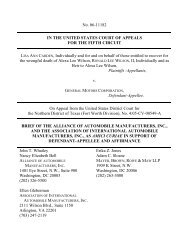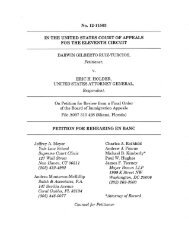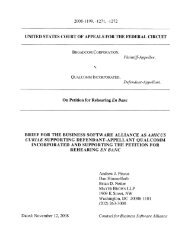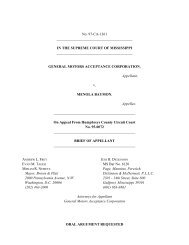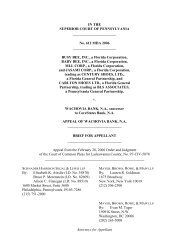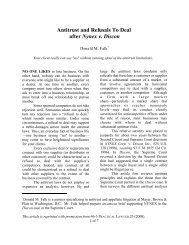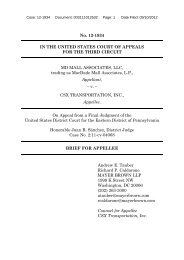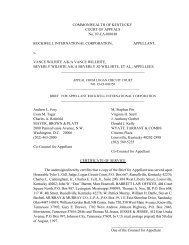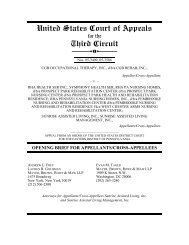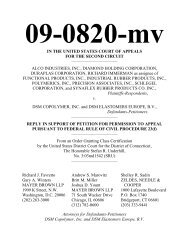No. 5-99-0830 IN THE APPELLATE COURT OF ... - Appellate.net
No. 5-99-0830 IN THE APPELLATE COURT OF ... - Appellate.net
No. 5-99-0830 IN THE APPELLATE COURT OF ... - Appellate.net
You also want an ePaper? Increase the reach of your titles
YUMPU automatically turns print PDFs into web optimized ePapers that Google loves.
have been the overwhelming predominance of individual issues of fact was an error of law<br />
that requires reversal of the judgment and decertification of the class.<br />
The certification of a class does not alter the substantive law applicable to the class<br />
members’ claims. See Meineke, 155 F.3d at 345 (“It is axiomatic that the procedural device<br />
of Rule 23 cannot be allowed to expand the substance of the claims of class members”);<br />
Cimino v. Raymark Indus., Inc., 151 F.3d 297, 312 (5th Cir. 1<strong>99</strong>8) (class certification “does<br />
not alter the required elements which must be found to impose liability and fix damages (or<br />
the burden of proof thereon) or the identity of the substantive law . . . which determines such<br />
elements”). See also Amchem Prods. v. Windsor, 521 U.S. 591, 615 (1<strong>99</strong>7) (holding that the<br />
class action device cannot “sacrific[e] procedural fairness”).<br />
Because the same substantive rules apply whether there is one plaintiff or millions<br />
suing as a class, plaintiffs must be able to prove all of the elements of their claim for each<br />
member of the class on whose behalf a judgment is rendered. This proposition is wellestablished<br />
in the antitrust context. See, e.g., In re Hotel Tel. Charges, 500 F.2d 86, 90 (9th<br />
Cir. 1974) (“allowing gross damages by treating unsubstantiated claims of class members<br />
collectively significantly alters substantive rights under the antitrust statutes”); Dry Cleaning<br />
& Laundry Inst. v. Flom’s Corp., 1<strong>99</strong>3 WL 527928, at *3 (E.D. Mich. 1<strong>99</strong>3) (“only<br />
individual members of the proposed class, not the class, can be injured ‘in [their] business<br />
or property’ by a[n] [antitrust violation]”). The same rationale applies to a breach of<br />
contract claim: a policyholder cannot recover damages for a breach of contract unless he can<br />
prove that he personally suffered an economic loss as a result of the insurance company’s<br />
failure to meet the particular obligations that were owed to him.<br />
-45-



